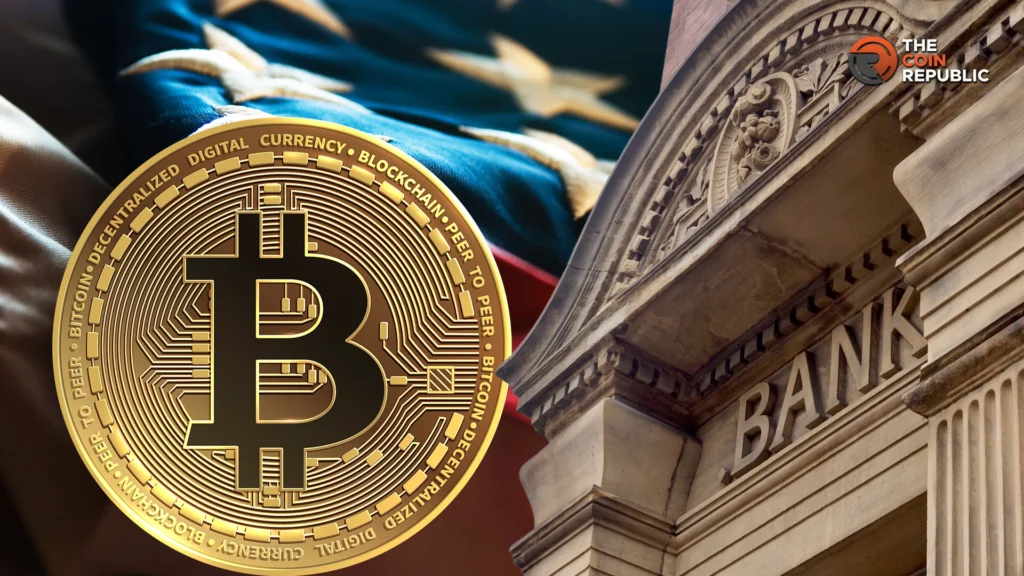Could Bitcoin Lead to Bankruptcy for the U.S. Government?

The price of Bitcoin (BTC), the world’s leading digital asset, has set a new all-time high (ATH) of $75,317, seven months after its last record in March. The broader cryptocurrency space is celebrating this milestone, and some predictions anticipate a further climb.
However, a major concern worth addressing hinges on the concerns about the impact of a soaring BTC on the US government.
Two schools of thought exist on the debate: those who believe that the rise of Bitcoin could weaken the U.S. dollar as a fiat currency and others who maintain the government can always prevent such a gloomy occurrence. To help, we will consider the merits of the arguments on both sides.
– Advertisement –
Bitcoin as a Threat to Government Finance
Bitcoin investors consider the coin a resistant asset to inflation, unlike fiat, which the government can print at will. Hence, a widespread acceptance of Bitcoin could weaken the U.S. dollar’s value and global dominance. If Bitcoin gains mass adoption by individuals and institutions as a store of value, the demand for fiat currency might crash.
This decreased demand could trigger challenges for the U.S. government, particularly in debt funding.
Bitcoin, a decentralized digital currency with a limited supply of 21 million BTC, operates outside traditional financial systems. The U.S. Federal Reserve, however, relies on controlling the fiat supply in circulation to manage inflation and economic spending. Given the rising popularity of Bitcoin, a general adoption might weaken the Federal Reserve’s ability to control monetary policy.
The Federal Reserve might lose its ability to control traditional economic tools to adjust interest rates and influence financial stability.
Additionally, as a decentralized currency, Bitcoin can prove difficult to track. Anonymous holders abound in the crypto space, which might enable users to evade taxation. Therefore, as more wealthy individuals embrace Bitcoin and shift to digital assets, the government might face the challenge of reducing capital gains from taxes. Over time, this might result in a budgetary shortfall and huge economic problems.
Can the Government ‘Tame’ Bitcoin?
Despite the speculative concerns that Bitcoin could push the government into bankruptcy, several hurdles exist to prevent it. Bitcoin has natural volatility characteristics. Its price fluctuations remain a major barrier to routine transactions and proper financial planning.
Notwithstanding Bitcoin’s popularity as an investment asset, many consumers and traditional institutions require fiat for everyday spending. This reduces the chances of Bitcoin edging out the dollar, weakening the government, or pushing it into bankruptcy.
Perhaps one of the strongest factors that would prevent Bitcoin from edging the government into bankruptcy is its regulatory power. The U.S. Treasury Department, the Federal Reserve, and the Securities and Exchange Commission (SEC) can greatly influence Bitcoin’s growth.
If these agencies sense a potential threat to the dollar and, by extension, the economic stability of the U.S., several measures will come into effect. These may include stricter regulation, mandating transparency for Bitcoin whale transactions, and enforcing anti-money laundering laws and know-your-customer policies.
Furthermore, the government could impose heavy taxes on Bitcoin transactions and profits. This could discourage its appeal as a store of value and hedge against inflation.
At the same time, the government might increase the attraction to other investment options. Other measures involve establishing a U.S. Central Bank Digital Currency (CBDC). This could allow the government more oversight into digital transactions and reduce the attraction for those who embrace Bitcoin for its anonymity.
Many Central Banks are already plying this route, implying it might soon become mainstream.
A Future of Coexistence Between Fiat Currency and Bitcoin
Rather than competing directly with fiat currency, Bitcoin might continue to coexist with the Dollar like gold has. Despite Bitcoin’s staggering surge in price and popularity, gold remains the number one asset globally by market capitalization, at $18.15 trillion. Bitcoin occupies the ninth position at $1.47 trillion.
It is important to note that no government would sit idly and watch its economic power reduce. The U.S. government has economic policymakers who see any potential threat and take measures to avoid it. The U.S. SEC has, in recent times, proven to be a major hurdle to many in the cryptocurrency space.
While many criticize the SEC’s regulatory actions, it has, in a way, helped curtail the surge in potentially harmful crypto solutions
Source link
#Bitcoin #Push #U.S #Government #Brink #Bankruptcy





